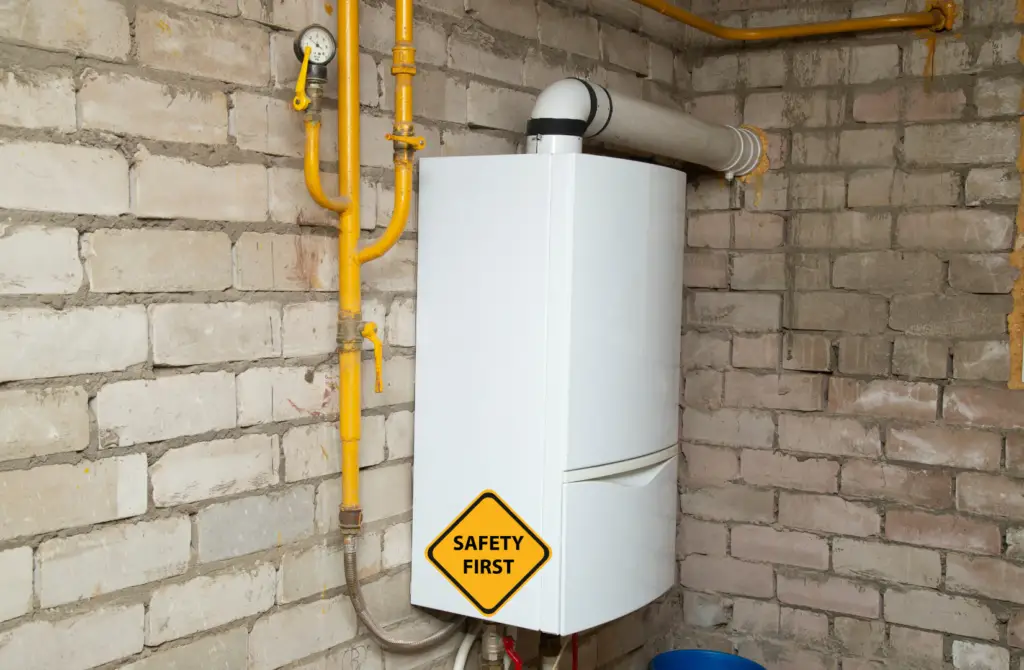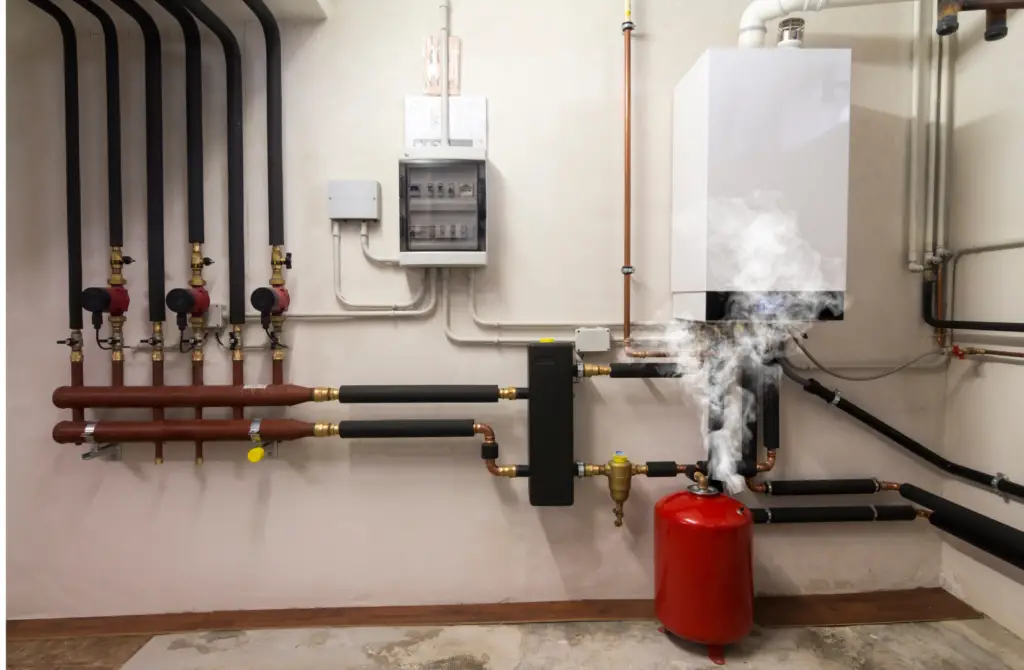Biomass boilers have become popular for homeowners and businesses looking for an eco-friendly and cost-effective heating solution. However, as with any heating system, safety is a crucial factor to consider before you install them in your homes which begs the question, are biomass boilers safe?
Biomass boilers are a generally safe and reliable form of energy production. These boilers are designed to be safe, efficient and effective while providing a clean and sustainable energy source. They are subject to rigorous safety standards and testing before they are sold out to the public.
This makes them one of the safest forms of energy production available. As such, it’s clear that biomass boilers are a safe and reliable choice for energy production. Continue reading to learn more about the safety of biomass boilers.

Safety Hazards of Biomass Heating
Biomass is an efficient, affordable, and renewable energy source with a low environmental impact. However, it is essential to know the safety hazards associated with biomass heating systems to ensure that they are used safely and responsibly.
The primary safety hazard associated with biomass heating is the risk of fire. Biomass heating systems generate heat by burning fuel, such as wood, pellets, or chips, and as such, there’s a risk of fire if the system is not maintained correctly.
Ensuring the system is installed correctly, regularly serviced and inspected will reduce the fire risk. It is essential to make sure that any combustible materials are stored safely away from the biomass system. Also, ensure the space around the system is free of any flammable substances.
Carbon monoxide poisoning is another safety hazard associated with biomass heating. This gas is a colorless and odorless gas produced by biomass heating systems that can be fatal if inhaled in sufficient quantities. To ensure that the system works correctly and safely, it must be adequately ventilated, serviced, and inspected regularly.
Safety Benefits of Biomass Heating
Biomass heating systems offer a range of safety benefits over other heating systems, making them an ideal choice for many homes and businesses. The most significant of these benefits is the low risk of fire associated with biomass heating. This is because biomass is a solid fuel unlike other volatile fuels like oil and gas. This eliminates the risk of explosions and leaks that can occur with other fuel sources.
Another safety benefit of biomass heating is the low levels of carbon monoxide produced. Biomass heating systems have significantly lower levels of carbon monoxide than other fuel sources, making them a much safer option.
Does Biomass Heating Produce Carbon Monoxide?
Yes, Biomass heating does produce carbon monoxide. This is because organic materials, such as wood, contain carbon. When these materials are burned, carbon is released in the form of carbon monoxide.
While the amount of carbon monoxide produced by biomass heating is usually low, it is essential to take proper safety precautions when using this heating system. This includes installing carbon monoxide detectors in the home and regularly checking and maintaining the heating system.
Does Biomass Heating Cause Fire?
Like other heating systems, Biomass heating systems can cause a fire if not properly installed, maintained, and operated. However, the risk of a fire can be significantly reduced by following the manufacturer’s instructions and taking the proper safety precautions.
Despite the potential for a fire, biomass heating systems are a great option for those looking for an efficient and cost-effective way to heat their home or business. Proper installation, maintenance, and operation can minimize fire risk.
Therefore, it is important to take the necessary safety precautions and follow the manufacturer’s instructions when installing and operating a biomass heating system. With the right precautions, biomass heating systems are safe and reliable.

Are Parts of Biomass Boilers Very Hot?
Biomass is an increasingly popular form of renewable energy produced from organic matter like wood, crops, and animal waste. As a result, it is a fuel that is both abundant and highly efficient. But are parts of biomass very hot? Yes!
Biomass generates heat through a process known as combustion. This process involves burning organic matter, which releases energy in the form of heat. This heat can be used to power various applications, such as heating water and generating electricity.
Depending on the type of organic material burned, the temperature of the heat generated by biomass can reach extremely high levels. Families who utilize biomass should take precautions to keep kids away from the system.
Where must a Biomass Boiler be Located?
It’s important to consider the safety implications of the location of a biomass boiler. A biomass boiler must be installed in a well-ventilated area, away from combustible materials like wood or paper. This ensures that the boiler does not pose a fire risk to the surrounding area.
Additionally, the boiler should be placed in an area that is not prone to flooding. If water gets into the biomass boiler, it could damage the boiler and affect its performance. The boiler should be installed in a secure area, as it is a valuable asset.
It is also important to consider the safety of the people who operate the boiler. For rapid and secure maintenance and repairs, the boiler should be situated in a location that is easily accessible. The location of the biomass boiler should also be clear of any potential dangers, such as sharp objects or slippery surfaces.
It is essential to consider the safety implications of where a biomass boiler must be located. By following the guidelines outlined above, you ensure that the boiler is installed in a safe and secure area and that it’s handlers are protected from any potential hazards.

Conclusion – Are biomass boilers safe?
Biomass heating systems are usually very safe.
Before selling to the public, government regulatory boards subject biomass boilers to a series of safety tests and checks to ensure their efficiency and effectiveness in producing sustainable energy.
Most of the safety hazards associated with Biomass heating systems are usually due to human error. Some of these include Carbon monoxide poisoning, fire outbreaks, burns, and so on.
Proper placement in a well-ventilated area and regular servicing can prevent carbon monoxide poisoning from biomass systems.
Also, since these boilers undergo combustion as they operate, it is of best practice to ensure that there are flammable materials around it while in operation.
To prevent burns and bruises, children should be kept away from these systems as they may be tempted to touch them. While all of these are very unlikely, it is also paramount to put in measures to help prevent their likely occurrence.
Always read the safety precautions of your biomass boiler and discuss any problems with a professional installer.


